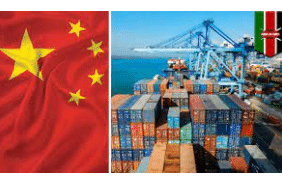The Conversation reports..
In December 2018, a leaked letter from the Kenyan auditor-general’s office sparked a rumour that Kenya had staked its bustling Mombasa Port as collateral for the Chinese-financed Standard Gauge Railway. Our new research shows why the collateral rumour is wrong.
The former auditor-general, Edward Ouko, was completing the 2017/18 audit of the national ports authority. He warned that the port authority’s assets – of which Mombasa Port is the most valuable – risked being taken over by China Eximbank if Kenya defaulted on the US$3.6 billion railway loans.
The profitable Mombasa Port is East Africa’s main international trade gateway. Launched in 2017, the railway was intended to seamlessly link the port to Kenya’s capital, Nairobi, and landlocked countries beyond.
The Kenyan fears mirrored another tale widely circulated earlier in 2018. In that story, China was said to have “seized” Hambantota Port in Sri Lanka when the island nation had trouble repaying Chinese loans. This “debt trap diplomacy” allegation was later shown to be a myth, but not before it sparked fears about other large Chinese projects.
The Chinese and Kenyan governments both denied that Mombasa Port was collateral but offered no explanation. Perplexed by the leaked letter, our team of scholars and practitioners of international commercial law and project finance spent months collecting primary documents and mapping the project’s contractual structure.
To our surprise, we found that the collateral rumour stemmed from a seemingly tiny but critical misreading by the auditor-general. The chief auditor mistakenly labelled the ports authority as a borrower, responsible for repaying the Chinese railway loans. He charged that by waiving sovereign immunity, Kenya’s government had “expressly guaranteed” that the ports authority’s assets could be used to repay the Chinese loan. The auditor-general was mistaken in both charges.
For the auditor-general, and many others, the debate over the railway and Mombasa Port was complicated by technical terms and practices. These are used routinely in the law and business of international project finance but are unfamiliar outside this arena.
Although some public education would have been necessary, releasing the contracts (which Kenya’s High Court ordered the government to do just last week) might have prevented the auditor-general’s mistake, and would have allowed debate on the facts, rather than rumours.
Read the full report at https://theconversation.com/mombasa-port-how-kenyas-auditor-general-misread-chinas-standard-gauge-railway-contracts-182610




